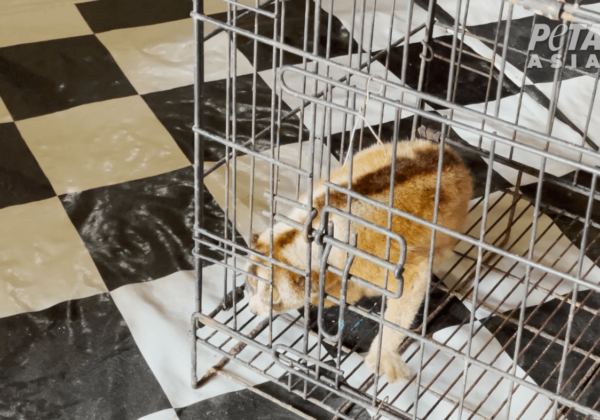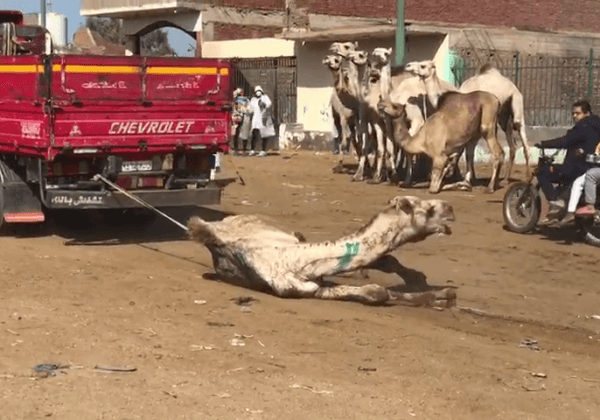Video: This Lion’s Seizure Is Another Reason Why the Manila Zoo Needs to Close
A video showing a lion called Rapee having a seizure in his enclosure at the Manila Zoo has gone viral.
https://www.youtube.com/watch?v=BnyPJ5WvcwE
The zoo’s veterinary staffers were apparently unaware that the lion was suffering from any health problems, and it was only after this video went viral that they claimed to be looking into the issue. This is yet more evidence that the zoo is completely ill-equipped to care for animals.
In addition to his deteriorating physical health, Rapee—like all the other animals at the Manila Zoo—is suffering from frustration, misery, and depression as a result of his confinement. In their natural habitat, lions roam far and wide, claim territory, and seek out mates. The lion enclosure—like all others at the zoo—is thousands of times smaller than the animals’ natural roaming range.
Animals in zoos have no say in when and what they eat, when they sleep, and whom they mate with. It’s simply impossible for them to express their instinctual behaviors, and they suffer terribly as a result. Last year, Bertha, a hippo held in captivity at the Manila Zoo, tragically only realized freedom through death.
BREAKING: Bertha, a hippo at the Manila Zoo, has died. ? Her life at the zoo was one full of boredom, misery and deprivation. ? pic.twitter.com/wt96325bmp
— PETA Asia (@PETAAsia) July 10, 2017
This zoo continues to defend the indefensible, and its callous objective is to maintain the status quo. Instead of forcing animals to continue to languish in this entirely inadequate facility, it should begin the process of transferring all the animals to reputable sanctuaries, where they can have the space, comfort, and care that they deserve.
Mali, a female elephant, has been kept in solitary confinement at the Manila Zoo for over 40 years. Her foot problems, which aren’t being treated, cause her constant pain and are potentially fatal. PETA has offered to transfer her to a sanctuary where she can live out her days in peace and comfort, all at no cost to the government.
What You Can Do
Anyone appalled by Rapee’s suffering should avoid all zoos. Please talk to family members, friends, and coworkers—especially those with small children—who may be inclined to go to one and explain that every ticket sale directly contributes to animals’ misery.









